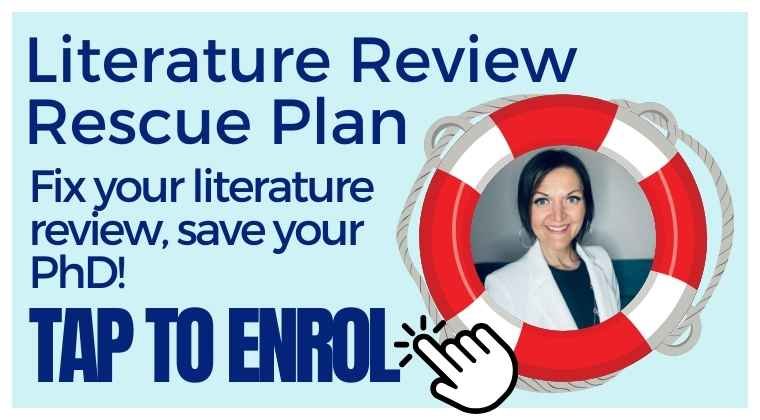PhD Literature Review - If you’re not doing this, why not?!
When it comes to the PhD literature review, this is game changer! The Provisional Outline Literature Review – or POLR for short – is the best and most efficient way to write a literature review.
It’s essentially a series of between three and five main headings, each exploring a specific element of your dissertation question. Underneath each heading are subheadings, which are framed as questions. Underneath these subheadings are short, bullet-point style summaries, with which neatly summarise the literature that’s helping answer those questions.
Here's an example of a heading, subheading and bullet-points.
Extract from an example POLR - Provisional Outline Literature Review
Your literature review stays in this format until you’ve collected and analysed your data and produced an outline of your discussion chapter. Only at this stage do you write it up in full.
Here are the advantages of doing it this way.
The Advantages of a POLR
1. It’s easy to work with
A partially or fully written up literature review is quite a cumbersome, bulky thing to work with.
You need to keep referring back to your literature review as you get on with the rest of your dissertation. You’ll need to go look at it when you’re developing your methodology, when you’re collecting and analysing your data, when you’re asking, “So, what?” afterwards.
When you go back to it at these points, you’ve got a lot of stuff to wade through.
You’ve got to read all of that, multiple times, find the important bits, page after page after page. That’s going to take time. You’ll lose track of where you are and what you’re doing because that is a lot to look at.
Do you really want to have to read thousands and thousands of words ever time? Or do you want a nice, compact overview, that you can just scan over to find what you need? If it’s the latter, a POLR is the way to go!
2. You avoid unnecessary writing and rewriting
Say you do write up your literature review in full before you start your methods chapter. Your literature review is all perfect, with lovely paragraphs and accurate referencing.
However, whilst you’re analysing your data, you think, “Damn, that thing I devoted 1,500 words to, I don’t think that’s all that important anymore!”. Or, “Oh! I’ve just found this thing, and it seems that’s really important. It really needs to go into my literature review. Argh! I’ve got to fit that in somewhere now!”.
You’re going end up dismantling and rewriting your literature review. You’re going to have to reconfigure the whole thing to fit new things in and take other things out.
When you’ve got a big, bulky multi-thousand word literature review, this is going to be very difficult.
However, if you’ve got a nice, neat, concise outline literature review in the shape of a POLR, it is way easier to take things out, put things in and move things around.
3. You don’t fixate on wordcount
Most dissertation students go through a phase of being completely obsessed with their wordcount.
They just want to get to 5,000 words.
They feel they need to be writing 1,000 words a week.
They have a burning desire to write more than their mate, Janet, who pumped out 4,500 words in Starbucks yesterday and told everyone about it on Instagram.
Chasing a wordcount can lead to students writing a load of old nonsense, just so they can feel that they’ve ‘written something’. They obsess over the numbers and aren’t paying enough attention to whether or not those words are any good!
Students who use outline literature reviews don’t have this problem. They don’t feel this pressure.
Because, from the outset, they prioritise quality over volume.
They know that their examiner is not going to give a stuff that they wrote 2,687 words this week. They know the only thing their examiner cares about are the words which end up in front of them. They care that those words provide a critical, analytical synthesis of the academic literature around the dissertation research question.
The examiner doesn’t care when those words were written, how fast they were written or how ‘far ahead’ of their peers the student was when they wrote them.
Literature Review Rescue Plan Digital Course
If you’ve tried to tidy up your literature review, but ended up in more of a mess than you started in, this course is for you!
Try the first lesson of the course out for FREE by clicking the button below!

